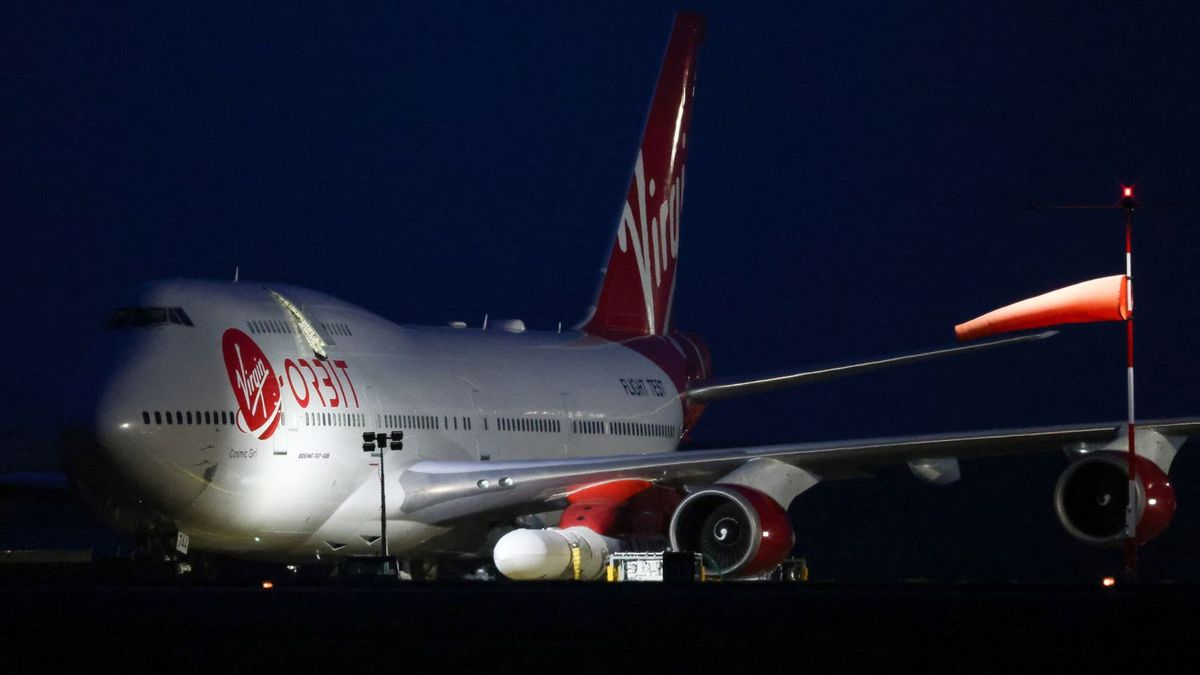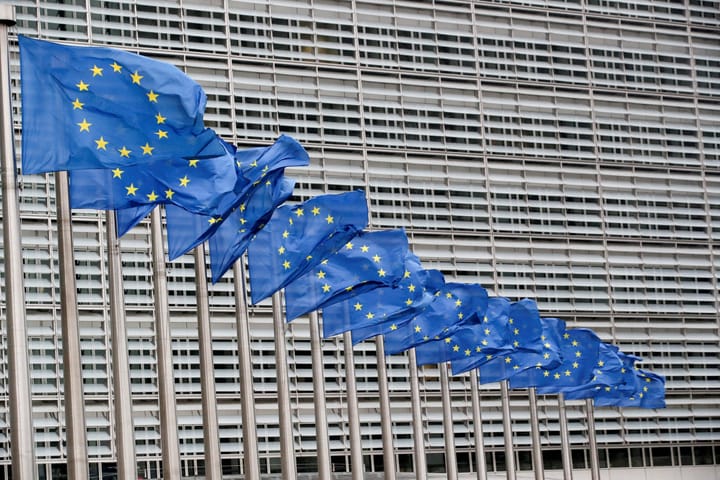The UK’s failed satellite mission
Believe it or not, the UK has never launched anything into Earth's orbit from English soil.

A few minutes every morning is all you need.
Stay up to date on the world's Headlines and Human Stories. It's fun, it's factual, it's fluff-free.
The backstory: Believe it or not, the UK has never launched anything into Earth's orbit from English soil. It's only been able to launch things into space from places like the US and Australia. But, in 2017, seven different places in the UK were given government funding to develop spaceport sites for launching small satellites into low Earth orbit. Now, we're starting to see the results of that funding.
More recently: On Monday, launch service company Virgin Orbit was ready to send up its first-ever rocket from the UK (and Europe). Virgin Orbit had only ever done launches from the US, where it's based. This new mission was called "Start Me Up," after a song by the Rolling Stones. Virgin Orbit used a converted Boeing 747-400 airplane named Cosmic Girl, which had a rocket called Launcher One attached to it loaded with nine satellites. Even though this was going to be a historical event, scientists knew it wasn't a guaranteed success.
The development: The launch failed, and the rocket failed to reach orbit. The plane was in the air for about an hour before deploying Launcher One, and everything seemed good at first. But then the system experienced what Virgin Orbit called an "anomaly" when the rocket's second-stage engine was supposed to go off. So, the mission had to end without being completed. CEO Dan Hart said the mission was already fairly complicated and that the company would fully investigate the failure and eventually give it another shot.
Key comments:
"The space industry is worth around £6.5 billion [US$7.7 billion] annually for the UK economy," Ian Annett, deputy CEO of the UK Space Agency, said during a news conference before the launch. "As a country, we are absolutely fantastic at designing and building satellites. We build more satellites than anywhere else outside of the US So it helps to develop an end-to-end capability so that we can do everything."
"We will work tirelessly to understand the nature of the failure, make corrective actions and return to orbit as soon as we have completed a full investigation and mission assurance process," said Dan Hart, CEO of Virgin Orbit, in a statement.
"We don't know what caused the anomaly but we achieved a launch," said Matt Archer, the director of commercial spaceflight at the UK Space Agency. "A lot of positives have been achieved. Space is hard. We knew that this had a risk of failure. Launches don't always work. We've created the conditions for launch here. We've shown we can do it and we'll look to do it again.




Comments ()